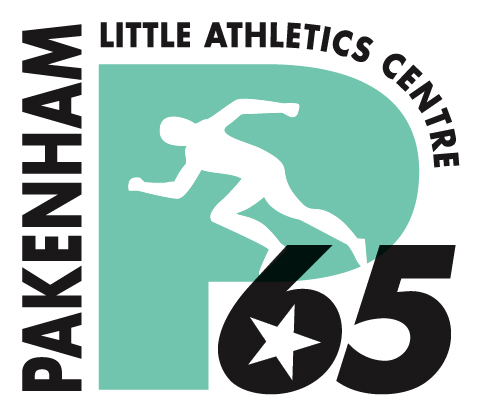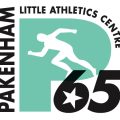The PLAC Code of Conduct
- Only parents who are helping are covered under insurance.
- No carer liability will be given for unregistered children that are brought to the Centre.
- Any parent helper needs to wear a coloured vest for easy identification. Vest will be supplied.
- Parents are requested to remain outside the fence line unless helping with a designated event.
- Parents of children who suffer from asthma will need to ensure they bring all appropriate medication with them.
- Any athlete found to be competing in an unsportsmanlike manner will be given one warning. Any further incidence will result in that athlete being disqualified.
Little Athletics Victoria Code of Behaviour
Parents’ Code of Behaviour
- Encourage children to participate if they are interested. However, if a child is not willing, do not force him or her.
- Focus upon the child’s efforts rather than the overall outcome of the event. This assists the children in setting realistic goals related to his/her own ability by reducing the emphasis on winning.
- Teach children that an honest effort is as important as victory, so that the result of each event is accepted without undue disappointment.
- Encourage children to always participate according to the rules.
- Never ridicule or yell at a child for making a mistake or losing an event.
- Remember children are involved in Little Athletics for their enjoyment, not yours
- If you disagree with an official, raise the issue through the appropriate channels rather than questioning the official’s judgement and honesty in public. Remember, most officials give their time and effort for your child’s involvement.
- Support all efforts to remove all verbal and physical abuse at Little Athletics activities.
- Recognise the value and importance of being a volunteer official and/or coach. They give of their time and resources to provide recreational activities for the children and deserve your support.
- Demonstrate appropriate social behaviour, by not harassing athletes, coaches or officials, smoking on the arena or being intoxicated.
- Avoid use of bad language.
Little Athletes’ Code of Behaviour
- Play by the rules.
- Never argue with an official. If you disagree, ask your Team Manager to deal with the matter.
- Control your temper. Verbal abuse of officials or other athletes, deliberately distracting or provoking an opponent is not acceptable or permitted in our sport.
- Work equally hard for yourself and/or your Centre/Club. Your Centre/Club’s performance will benefit.
- Be a good sport. Applaud all good results whether they are by your Centre/Club, opponent or the other Centre/Club.
- Treat all athletes, as you would like to be treated. Do not interfere with, bully or take unfair advantage of another athlete.
- Co-operate with your coach, club mates and other participants. Without them there would be no competition.
- Participate in Little Athletics for the “fun of it” and not just to please parents and coaches.
- Avoid use of bad language.
Officials’ Code of Behaviour
- Compliment all participants on their efforts.
- Be consistent, objective and courteous in calling all infractions.
- Condemn unsporting behaviour and promote respect for all opponents.
- Ensure that the “spirit of the game” for children is not lost by using common sense and not over-emphasising errors.
- Ensure that equipment and facilities meet safety standards and are appropriate to the age and ability of the participants.
- Publicly encourage rule changes, which will reinforce the principles of participation for fun and enjoyment.
- Ensure that your behaviour is consistent with the principles of good sporting behaviour. Actions speak louder than words.
- Make a personal commitment to keep yourself informed of sound officiating principles and the principles of growth and development of children.
- Avoid use of bad language.
Coaches’ Code of Behaviour
- Be reasonable in your demands on young athletes time, energy and enthusiasm.
- Teach athletes the rules of the sport are mutual agreements, which no one should evade or break.
- Whenever possible, group athletes to give a reasonable chance of success.
- Avoid over-coaching the better performing athletes, the “just averages” athletes need and deserve equal time.
- Remember that children participate for fun and enjoyment and that winning is only part of their enjoyment. Never ridicule or yell at the children for making mistakes or losing an event.
- Ensure that equipment and facilities meet safety standards and are appropriate to the age and ability of the athletes.
- Take into consideration the maturity level of the children when scheduling and determining the length of training times and competition.
- Develop respect for the ability of opponents as well as for the judgement of officials and coaches.
- Follow the advice of a physician when determining when an injured athlete is ready to recommence training or competition.
- Make a personal commitment to keep yourself informed of sound coaching principles and the principles of growth and development of children.
- Demonstrate appropriate social behaviour, by not harassing athletes, other coaches or officials, smoking on the arena or being intoxicated.
- Avoid use of bad language.
Spectators’ Code of Behaviour
- Remember that children participate in Little Athletics activities for fun. They are not participating for the entertainment of spectators only, nor are they miniature professionals.
- Applaud good performances and efforts from each athlete. Congratulate all participants upon their performance regardless of the event outcome.
- Respect the officials’ decisions. If there is a disagreement, follow the appropriate procedure in order to question the decision and teach the children to do likewise.
- Never ridicule or scold a child for making a mistake during a competition. Positive comments are motivational.
- Condemn the use of violence in any form, be it by spectators, coaches, officials or athletes.
- Show respect for each participant. Without them there would be no events.
- Encourage athletes to follow the rules and the officials’ decisions.
- Demonstrate appropriate social behaviour by not harassing athletes, coaches or officials, smoking on the arena or being intoxicated.
- Avoid use of bad language.
Administrators’ Code of Behaviour
- Involve children in the planning, leadership, evaluation and decision-making related to the activity.
- Ensure that equal opportunities for participation in sports are made available to all children, regardless of ability, size, shape, sex, disability or ethnic origin.
- Ensure that equipment and facilities are safe and appropriate to the ability level of participating children.
- Ensure that rules, equipment, events and training schedules take in consideration the age, ability and maturity level of participating children.
- Ensure that adequate supervision is provided by qualified and competent coaches and officials capable of developing appropriate positive behaviour and skill technique.
- Remember that children participate for enjoyment and play down the importance of rewards.
- Avoid allowing programmes to become primarily spectator entertainment. Focus on the needs of the participants rather than the enjoyment of the spectators.
- Provide clinics aimed at improving the standards of coaching and officiating, with an emphasis on appropriate behaviour and skill technique.
- Ensure that parents, coaches, sponsors, administrators, officials, physicians and participants understand their responsibilities regarding fair play.
- Distribute the Code of Behaviour sheet to spectators, officials, parents, coaches, athletes and the media.
- Avoid use of bad language.
Codes of Health Behaviour
- Little Athletics understands the harmful affects of smoking on health, fitness and performance in sport, and as a result has adopted the following Code of Behaviour:
- Participants/Athletes are reminded that smoking adversely affects performances and are prohibited from smoking during competition, trainings, warm-ups, and warm-downs.
- Coaches and Officials are reminded of their responsibilities, as “role models” particularly with juniors, and are asked to refrain from smoking whilst associated with our sport.
- Premises and playing areas should be declared “Smoke Free Zones” – smoking permitted only where a special smoking area is designated.
- Visiting Participants, Coaches and Officials are also asked to respect our Codes of Behaviour.
- Spectators are reminded that smoking is inappropriate behaviour in a sporting environment and are asked to respect our sport Code of Behaviour.

